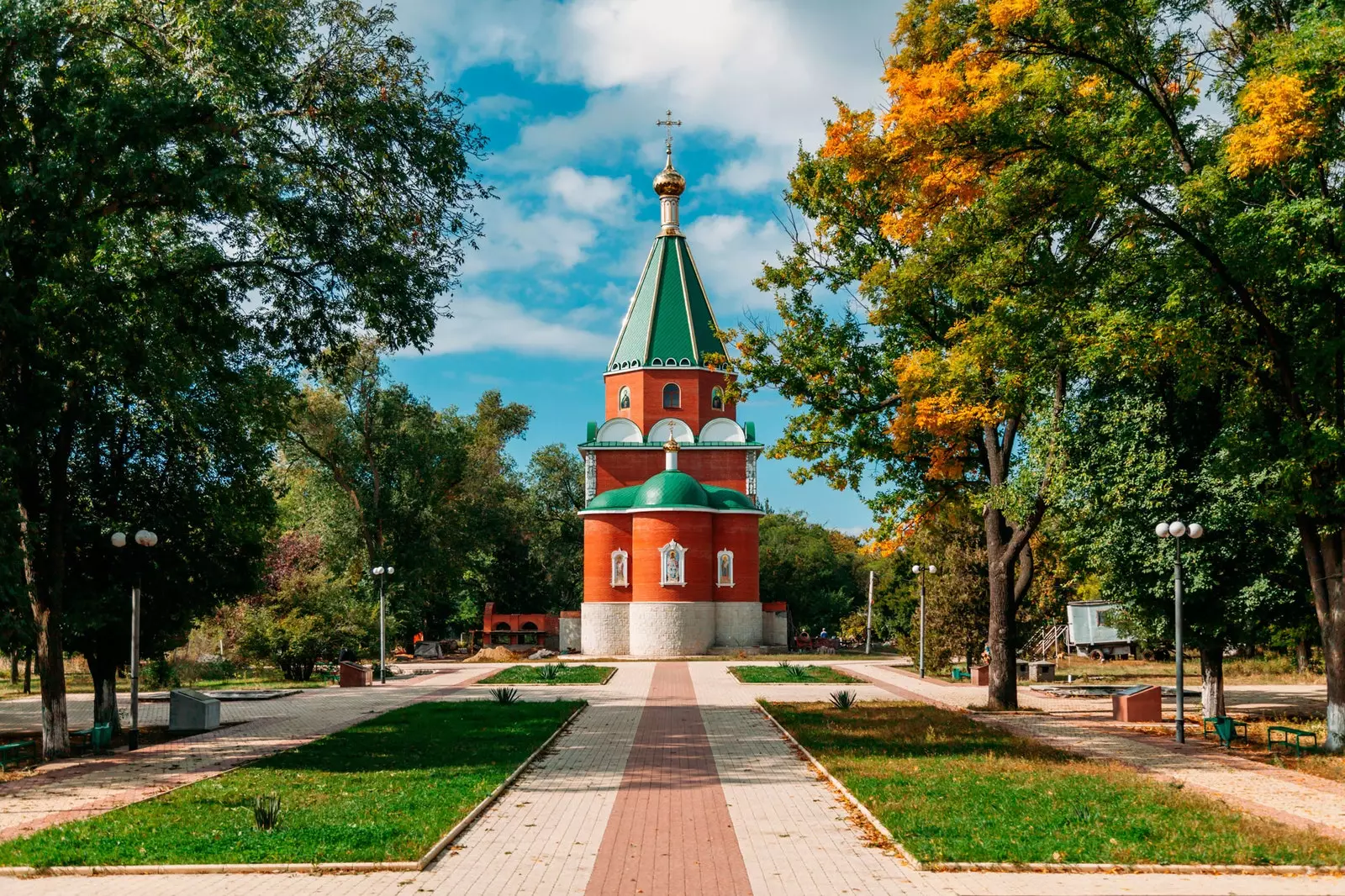
Vvedensko-Pakhomiev Monastery, Tiraspol
Transnistria is something like a hypertext territory. Everything refers to another idea, lends itself to fantasizing. In the first place, because by itself, when one is in the very center of Tiraspol (its capital), offers few elements to recreate, which stimulates the imagination.
And for this reason, secondly, we must justify the tortuous journey to these streets, which could be those of any suburb of any city in any Eastern European country.
One advances through the avenues like a character in a video game looking for a mission. Everything is made in the image and likeness of reality, but suddenly extraordinary elements arise, such as small programming errors.
It is as if in the video game, suddenly a bus appears to fly backwards or as if an individual walks through a wall. Then the mission becomes to fit the pieces of what we see and know.
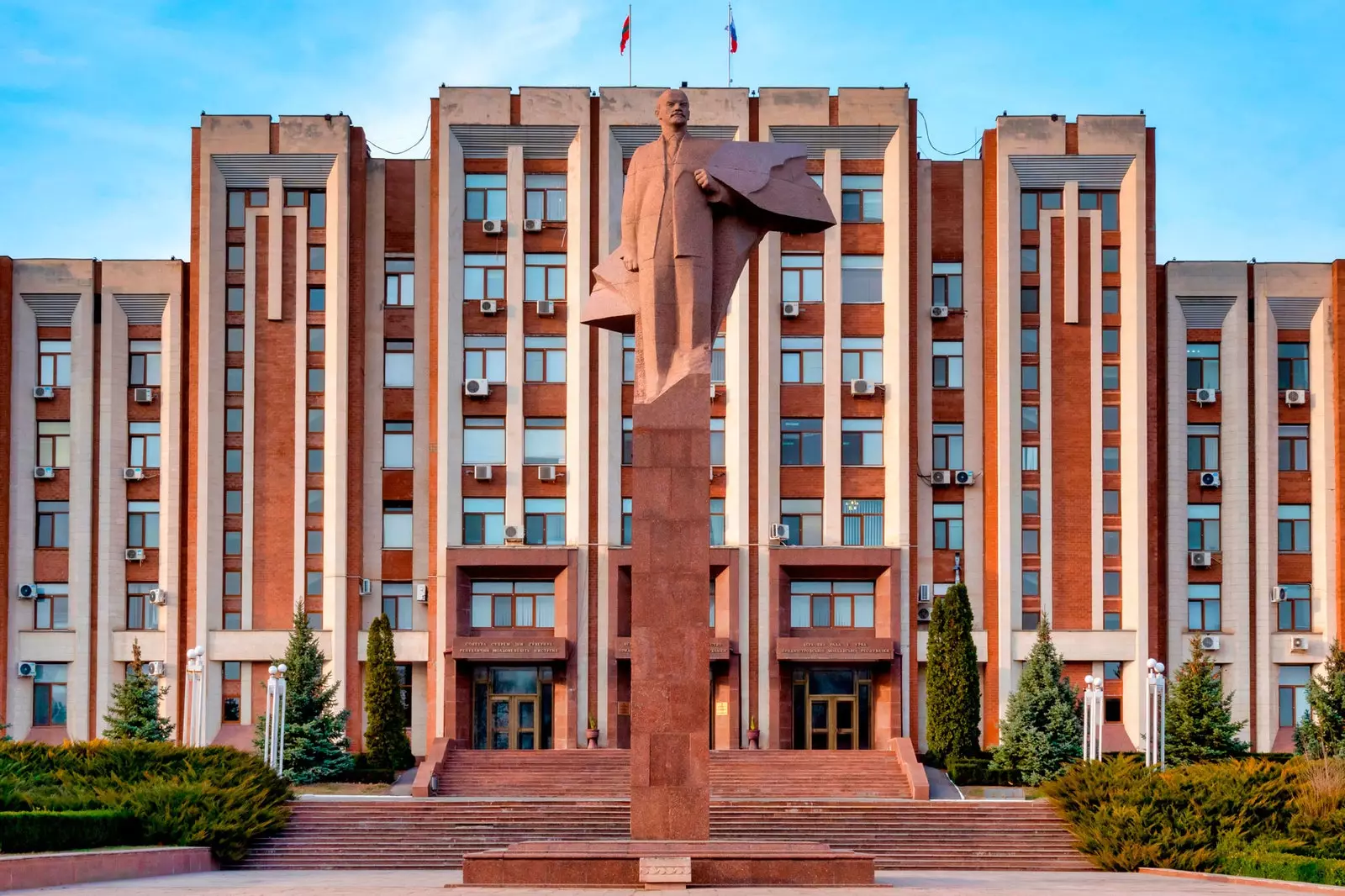
Transnistrian Parliament building and statue of Lenin
Transnistria, first of all, is a country that is not a country (sic). It is a country only recognized by countries that are not countries (sic). Its currency, the Transnistrian ruble, is the same: it only works and is exchanged in this small territory (smaller than the Balearic Islands) between Moldova and Ukraine.
Its communist system (sic) is visually well cared for, but it doesn't quite fit in with the supermarkets and sushi restaurants. The last elections surprised those who consider it a dictatorship. And the visa they give you at the entrance is not much more serious than the flyer of a nightclub.
Crossing the border from Moldova, in fact, is one of the most serious programming errors in the video game. In front of the security booths, it is possible to take photos of all the propaganda paraphernalia, but once the passports are delivered, a friendly character asks you to delete them. Everything is highly confidential; builds suspense.
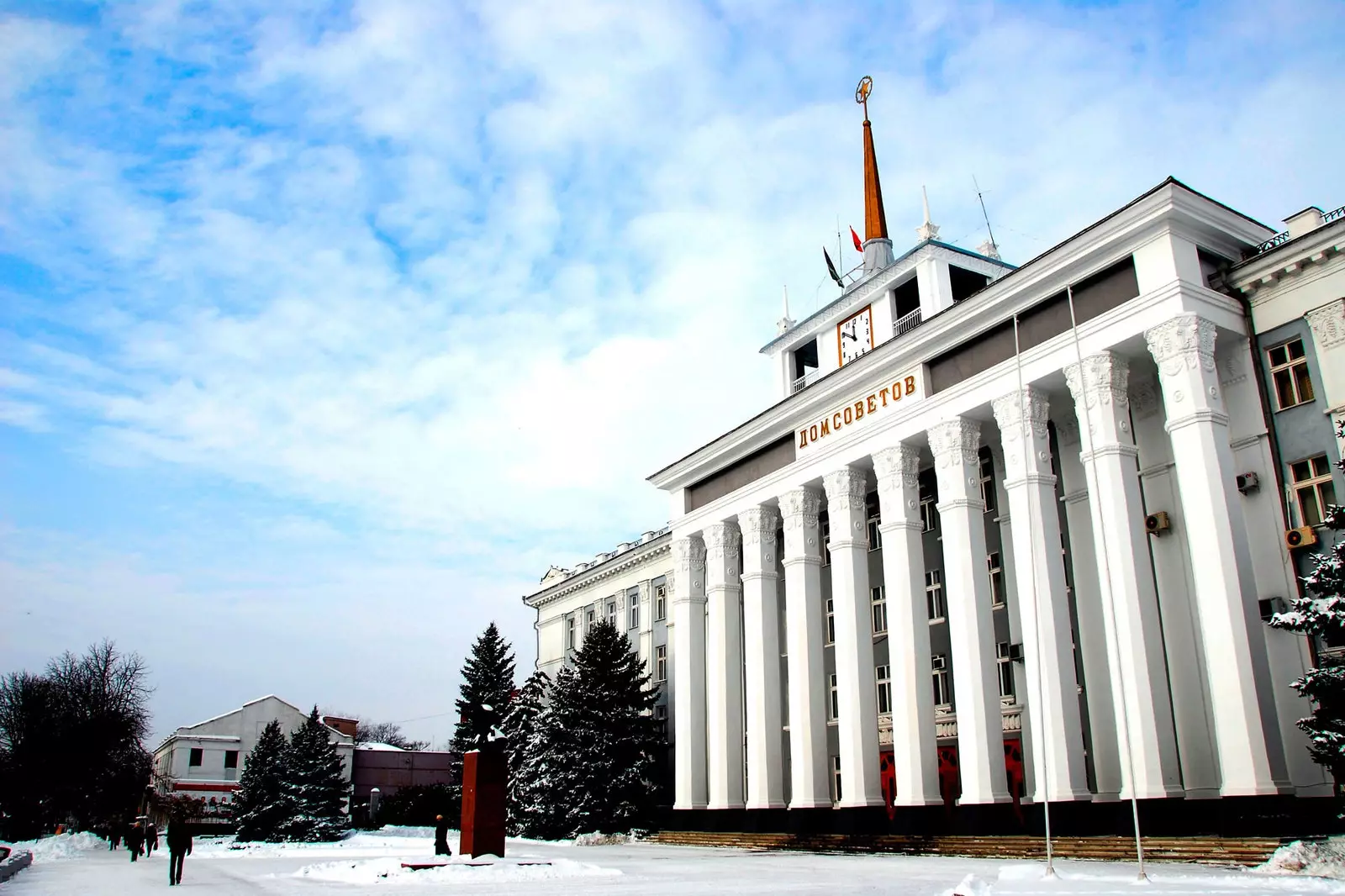
The House of Soviets in Tiraspol (Transnistria)
They fiddle with the passport a bit, but there is a tacit agreement not to leave marks on it. In exchange, they deliver some pieces of paper that allow you to be in this virtual reality for 24 hours. You better keep them if you want to go out, they warn.
Procedure completed and the bus can now continue to Tiraspol. It does so along a road that multiplies the symbols displayed at this strange border crossing: hammers and sickles, the Transnistrian flag merged with the Russian, the occasional colored Lenin and heavy weapons displayed in several roundabouts.
To understand where the shots are going, we go to the game tutorial: Russian and Ukrainian ethnic majority and In disagreement with the incipient formation of the State of Moldova (Soviet republic to which it belonged), Transnistria unilaterally declared its independence in 1990.
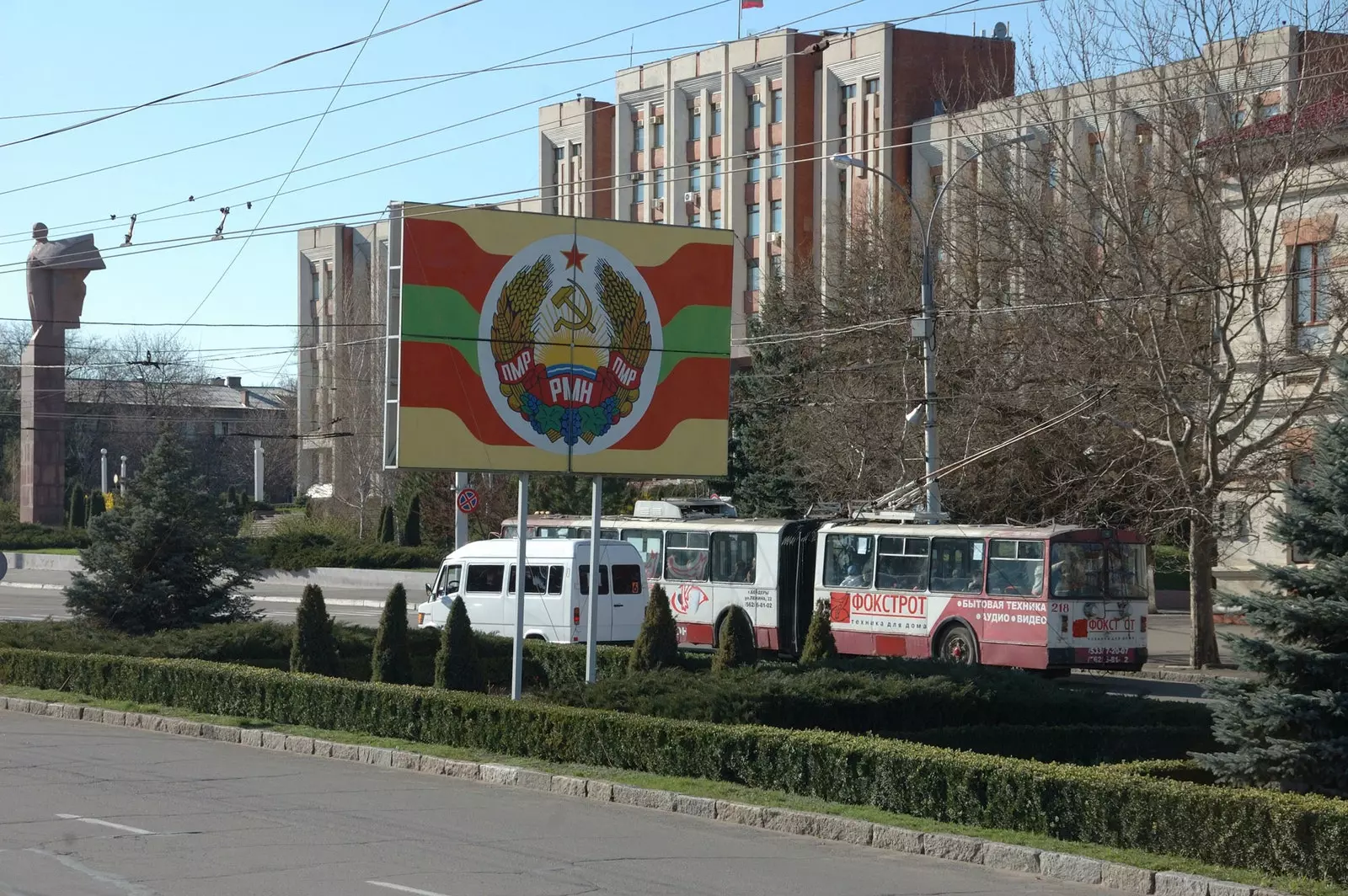
Tiraspol, capital of Transnistria
The instructions say that the ideal was to remain as Soviet or Russian territory, which is still claimed, but it was not possible. it started like this a civil war whose ceasefire, not an armistice, is maintained to this day.
Hence the Russian flags everywhere and the feeling of being on the outskirts of Yekaterinburg (to put any Russian city). In fact, this tilt to the east may also justify such an amount of sashimi and spring rolls.
The colorful gastronomy, together with a typical 90's mobile park and costumes, they contribute to creating the halo of time travel with which any self-respecting report sells the trip to Transnistria.
If Paris is well worth a mass, Transnistria is well worth a DeLorean and a lightning rod. Its almost empty streets allow you to take a run to head back to the future, which the wiring of the trolleybuses can facilitate.
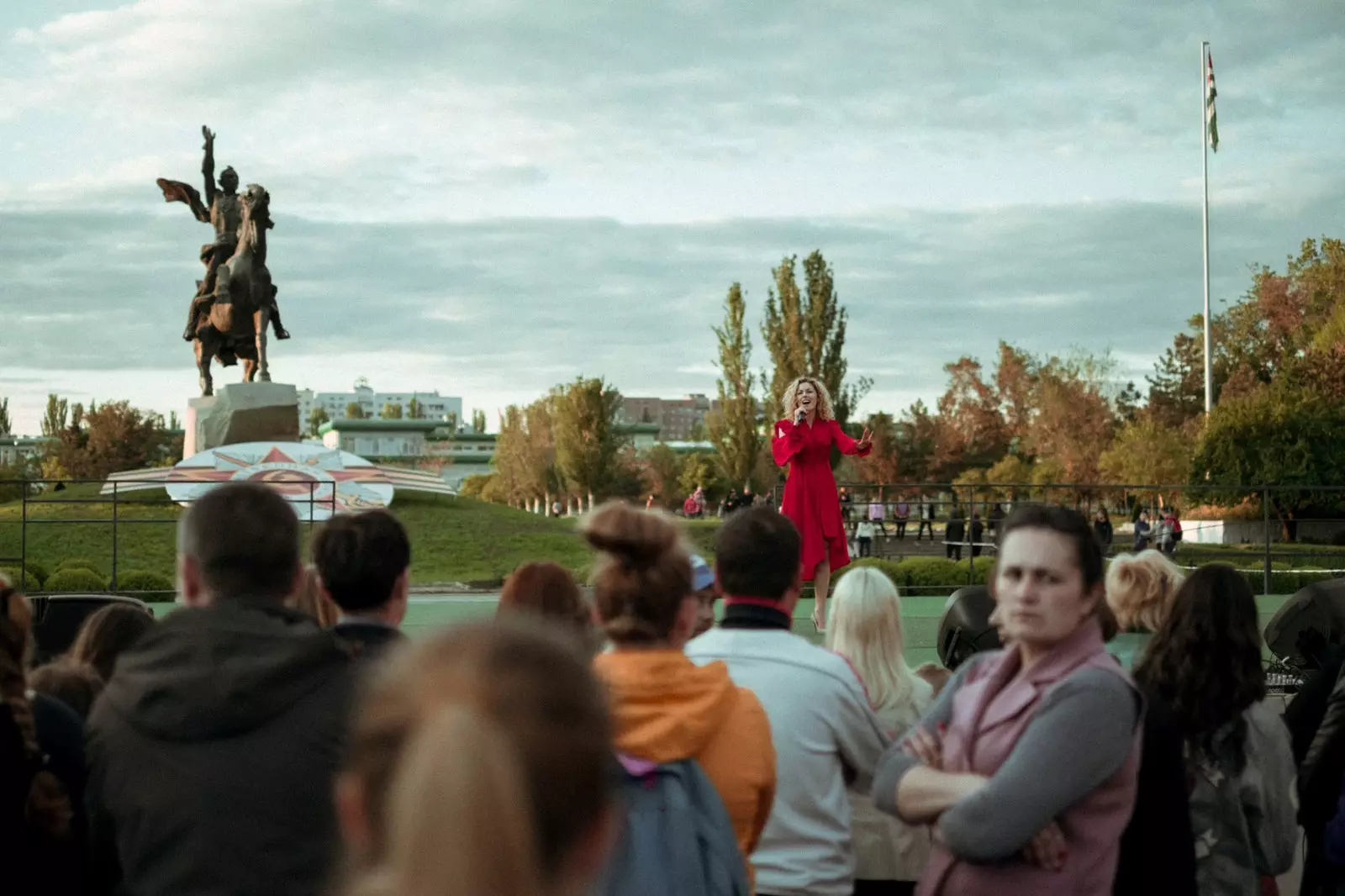
Tiraspol
But wait, Dock!! Let's squeeze a little more these 24 hours that we have before going back to Chisinau or leaving the non-country through its northern non-border towards Ukraine.
It is worth approaching the stadium of the multi-champion of the Moldovan league, Sheriff CF, whose name fits a bit forcefully with all this breath of the Far East.
Advancing along this road is also good for taking a few first steps in the art of the urbex, or tourism of abandoned facilities. There are not a few factories that can be explored without too much difficulty.
One of them, the one that put the region on the map as early as 1897, is still in business: the Kvint cognac distillery. As in reality, Transnistria brings us the high-grade version of Moldova (whose wine cellars are the country's biggest draw).
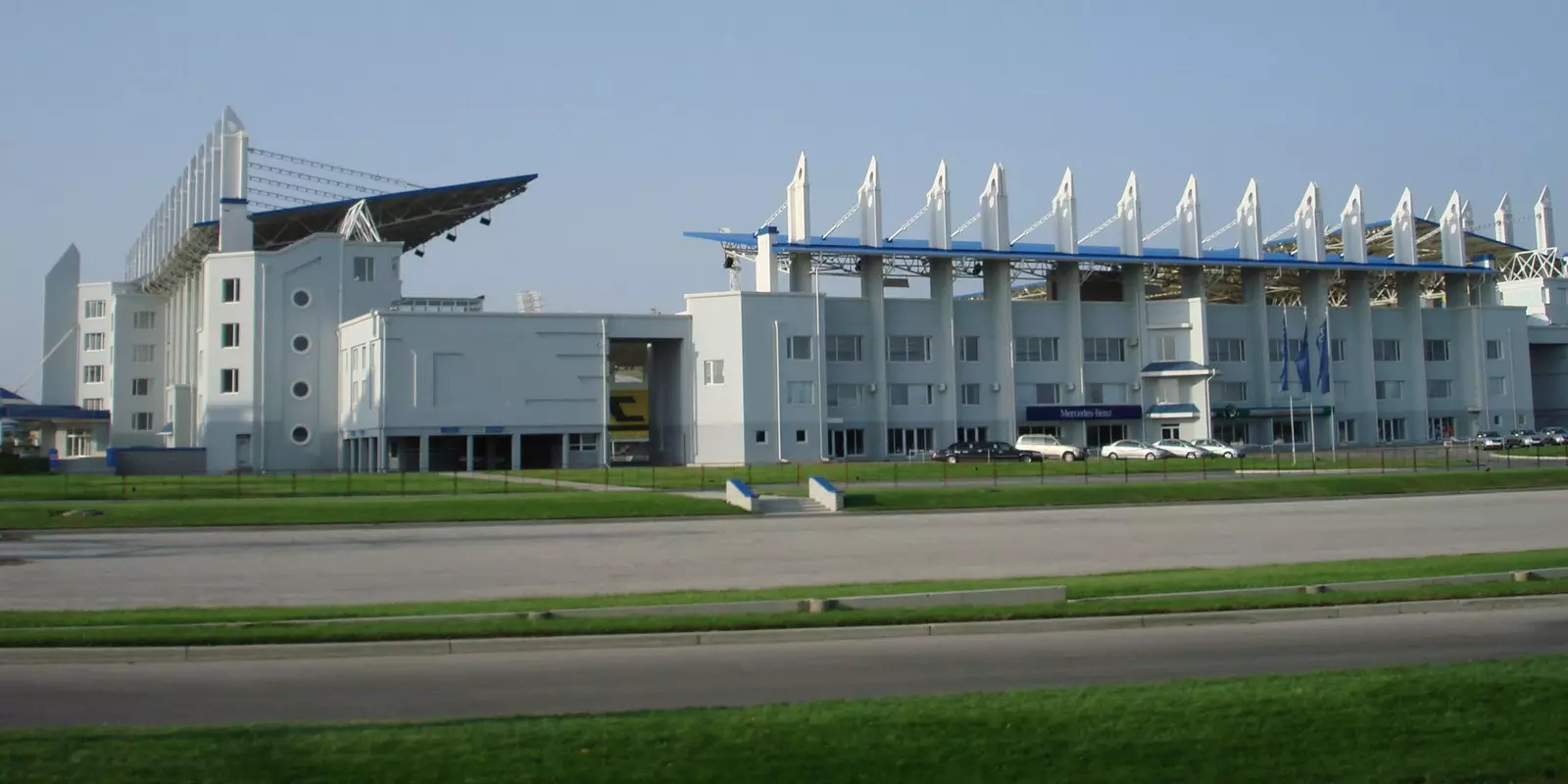
Stadionul Sheriff, Tiraspol
Excursions are even offered here to visit the manufacturing process of the cognac that was drunk both in the USSR, as in space or in the Vatican. Good common denominator. Registered as a Moldovan company, Kvint is one of the largest exporters in Transnistria and its sales accumulate between 5 and 20% of its uncertain GDP. It appears on 5 ruble bills for a reason.
In fact, for the visitor who is bored in the sushi restaurant on Engels Avenue and in front of the Dom Sovetov (the house of the Soviets), they are more interesting the legends that point to arms trafficking and white slavery from Russia as the two great sectors of the Transnistrian economy.
Rumors aside, the dependence on Moscow has not stopped decreasing since 2009 (to almost a fifth of its volume) and commercial ties with its region and the EU are increasingly firm, based on the secondary sector.
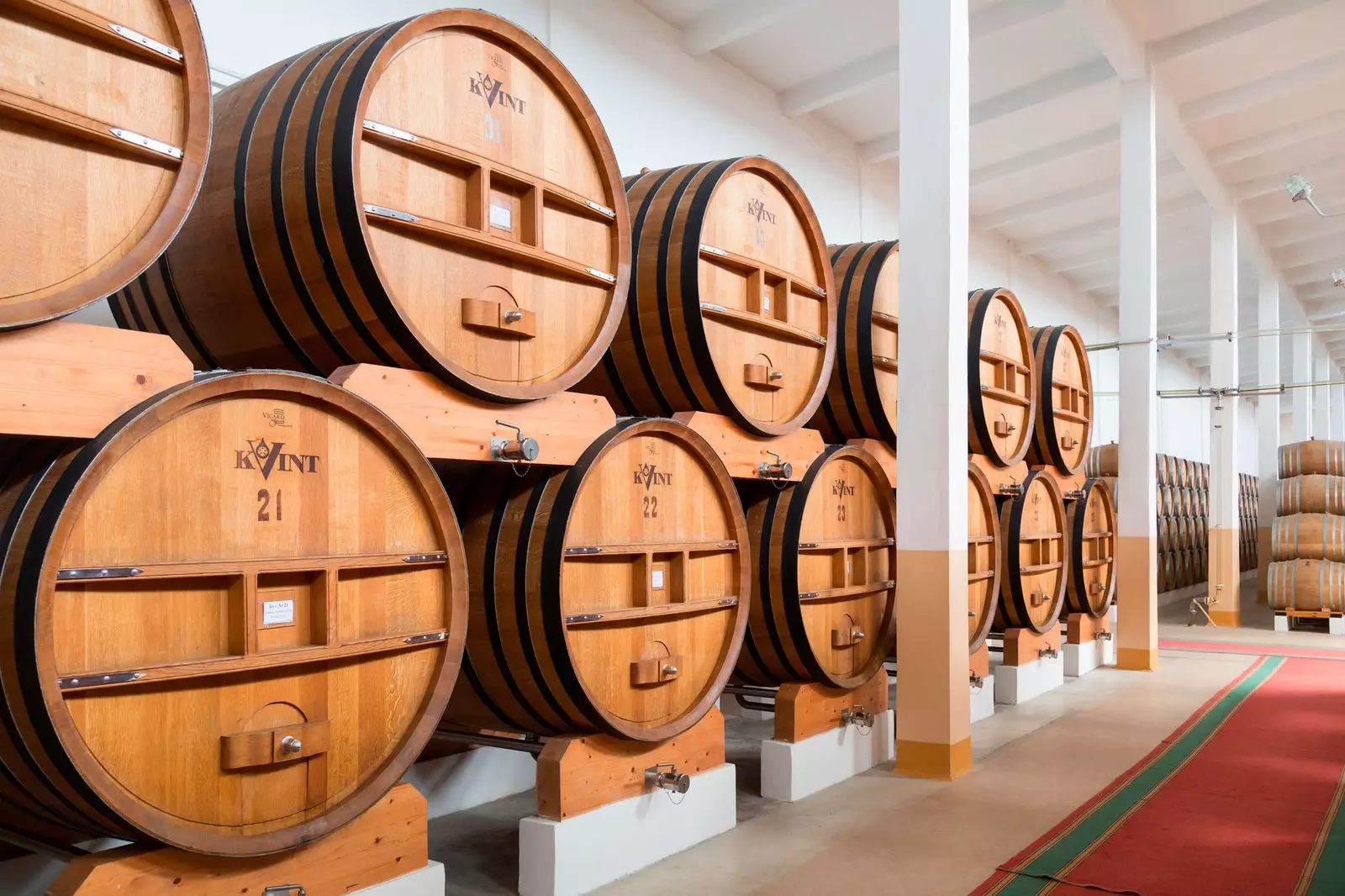
The Kvint Cognac Distillery
After the shot of cognac from a bottle of almost 2,000 euros, we entered the discount. Dock gives us a few extra minutes to drive to the city of Bender, whose 16th-century fortress provides sustenance of historical reality to the country, of Ottoman heritage. It was here that Swedish King Charles XII was imprisoned in the 18th century, to whom a small memorial commemorates.
The day, hot and dry, gives off the same parsimony of the broad, yellowish meadows, cooled by the Dniester River. There is hardly any traffic on the road and a few houses dot the landscape. This expedition in arcade mode approaches its end without any surprises.
On the last marshrutka of the day to Chisinau, a few words in English slip between two seats. Another player, about 25 years old, tells how he spent the whole day in a police station, after being arrested for red-crossing a pedestrian crossing that same morning.
Nothing seemed to work with his strict guardians, who only succumbed to a threat to call an embassy in Chisinau. Too much diplomatic fuss, Player2 laughs, but I didn't even see a statue of Lenin, he laments. Game Over.
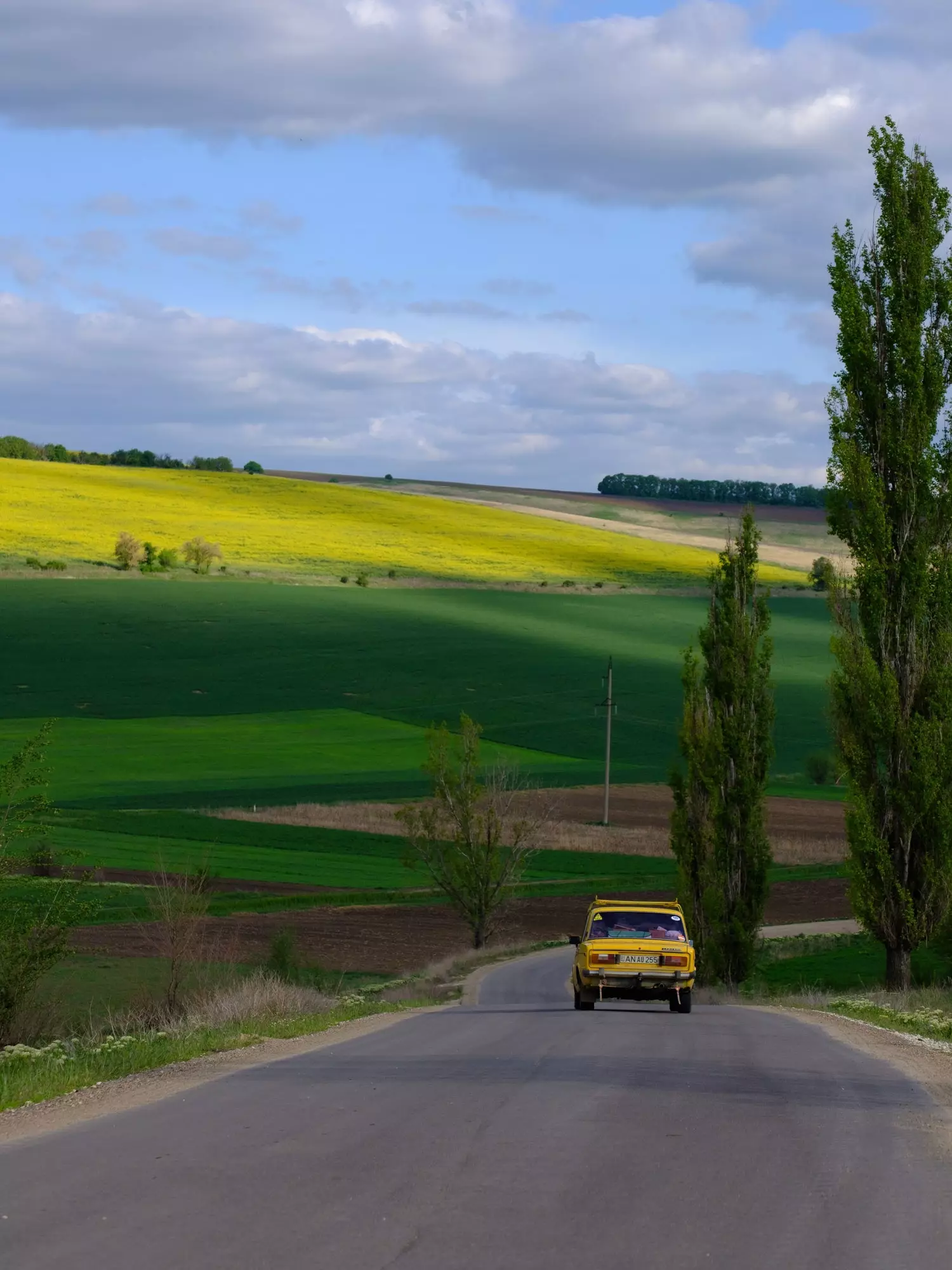
Hit 'play'!
